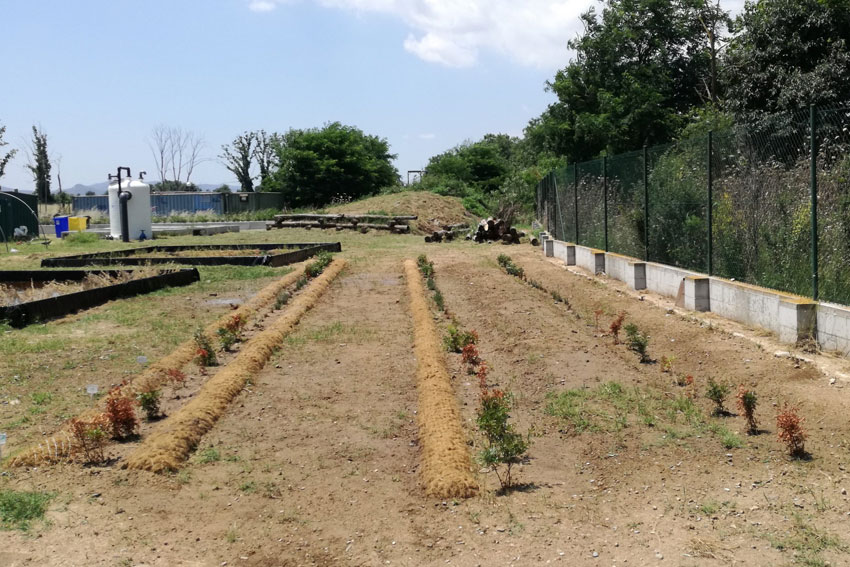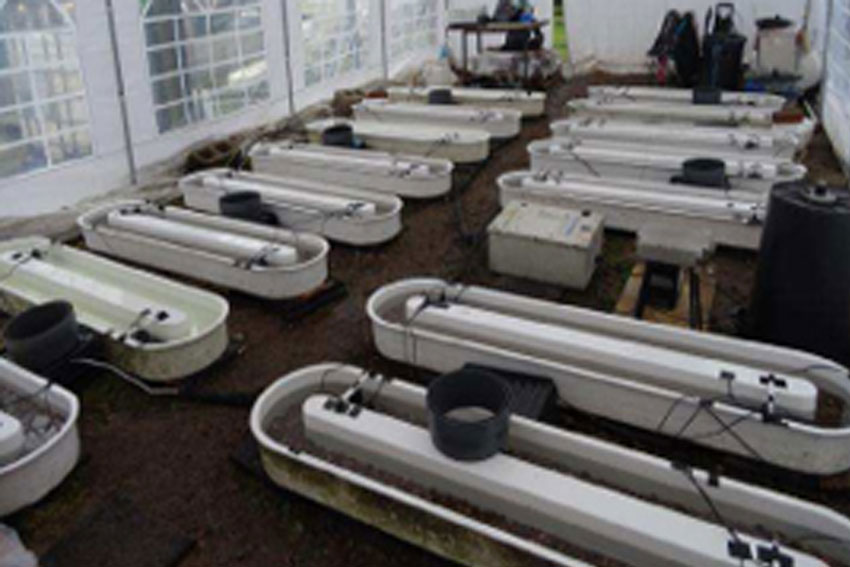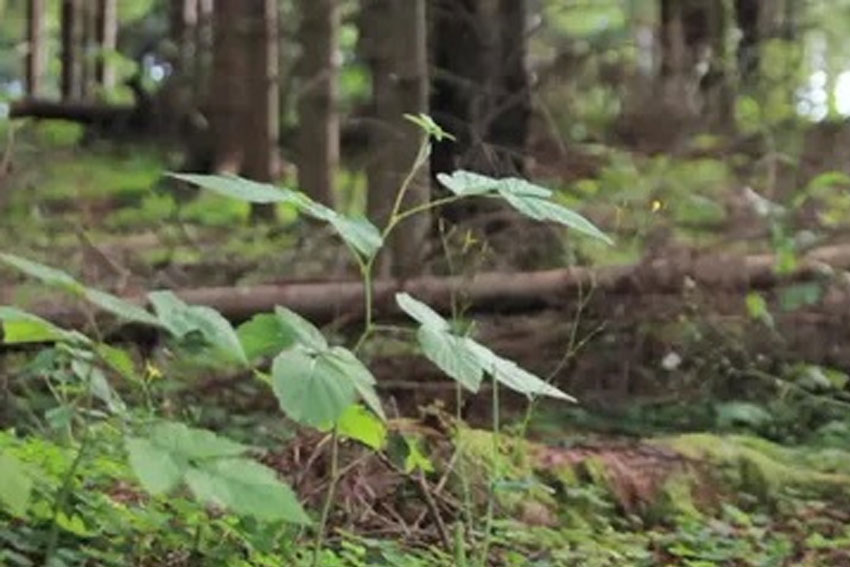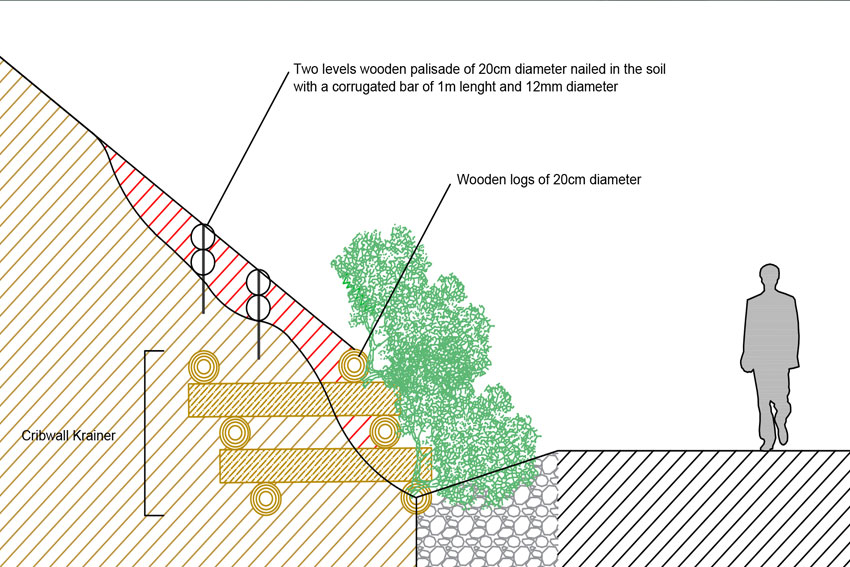With European projects such as the OPERANDUM, in which we participate, we scientifically demonstrate the advantages of Nature-Based Solutions (NBS)
We work with pioneering technologies from multiple disciplines: hydrology, ecology, environmental physical engineering, pollutant, science, modelling, etc.


With our research at the Urban River Lab (URL) we develop strategies and improve the tools to restore and preserve river areas
We share methodologies and experiences to enhance cooperation between the research and management of natural spaces.
A novel integrated design methodology for Nature-Based Solutions and Soil and Water Bioengineering interventions
An innovative methodology for designing nature-based solutions (NBS) and soil and water bioengineering (SWB) works is proposed, which includes the main particularities of this type of intervention.
The proposed methodology is validated by means of a practical case study example embracing the whole service life of an SWB/NBS intervention. The obtained results are in good agreement with both the accumulated experience within the European SWB sector and the existing data collected in SWB monitoring works. The proposed methodology can be readily implemented in a wide range of nature restoration projects and works.
September 2023

Article written by Naturalea technical area and published in Sustainability journal
“Improvement of the Plantation Success in a Crib Wall in a Mediterranean Hydro-Meteorological Risks Scenario—Practical Results”
The use of fiber rolls or HDCL (high-density coir logs) in crib walls and the effect on the growth of planted shrub, the development of roots, the colonisation of native vegetation and, ultimately, the structure’s resistance to floods.
October 25, 2021
Naturalea participates in the CERES project
The CERES project’s main objective is to promote ecological connectivity in forest ecosystems at different scales, favouring the circulation of flora and fauna species, both between stands, forests, and natural spaces. The project works in the forest environments themselves, improving their quality as reservoirs, as well as in the connectors between forests, such as riparian areas.
The CERES project proposes sharing methodologies, experiences, and good practices that can enhance cooperation between researchers and managers of natural spaces.
May 2021
Naturalea participates in the Life BIORGEST project
The main objective of this project is to improve the Mediterranean forest’s biodiversity through the integration of specific measures and innovative practices of planning and forest management tools.
At the same time, it also aims to develop new financing and compensation mechanisms for the forest property in order to encourage the application of these conservation measures.
In this way, it is intended to make the improvement of biodiversity compatible with the economic sustainability of the forest management, guaranteeing the persistence of the masses and, at the same time, their adaptation to climate change.
April 2021

Naturalea participates in the ECO-REACTORS project
We are participating in the ECO-REACTORS project together with the University of Barcelona and the CSIC-CEAB to evaluate the biogeochemical reactivity, sensitivity and resistance of river ecosystems in order to mitigate the direct impact of effluents from the WWTP in intermittent or low flow rivers.
Within the framework of the project, we have carried out two interventions in the Caldes de Montbui and Cànoves WWTPs, flooding some riverside plots with sewage water to evaluate the mitigation effects of the effluent load on the receiving river section through diffuse discharge.
We are also reproducing the same scenario in an experimental situation at the Urban River Lab facilities.
October 2021

The role of halophytes in the retention of salts in saline waters. OPERANDUM project
Within the framework of the European OPERANDUM project in which we participate, we have carried out this experiment at the Urban River Lab (URL) facilities to determine the possible influence of plants on salinity.
Naturalea has collaborated with the Blanes Centre for Advanced Studies (CSIC-CEAB) and the University of Barcelona (UB) for the monitoring of the experiment, the analysis of the established parameters and for modelling the data obtained.
You can browse the Operandum project at operandum-project.eu.
May 2021

Results of the experiment on the effects of high-density coir Fiber Rolls on the availability of water to make plantations in areas with water stress
Report on the results of one of the five experiments designed by Naturalea within the framework of the OPERANDUM project, with the aim of determining whether high-density coir fibre rolls positively influence the development of the plant.
The hypothesis was to determine whether coir fibre favours plant growth and to ensure that in times of drought it does not act like a “sponge” by drying them out. The result is that the coir Fiber Rolls favours its growth.
January 2021
Demonstrative slope restoration using soil and water bioengineering techniques at Catterline, Scotland, within the framework of the OPERANDUM project
Naturalea has drawn up a demonstration project for slope stabilisation in Catterline Bay, Scotland, within the framework of the European OPERANDUM project in which we participate.
June 2019

Study of the potential of materials used in soil and water bioengineering to reduce the load of nitrates and phosphates in the water in the HiFreq project
Within the framework of the European HiFreq project, Naturalea is collaborating with the University of Birmingham (UK) in a research project that studies the potential capacity of some materials used in soil and water bioengineering techniques to reduce the concentration of nitrates and phosphates in water. We are currently in the preparation phase of the design and experimental set of this experiment that will be carried out at the Ecolab (Environmental Change Outdoor Lab) of the University of Birmingham.
May 2018
Other reports
- Results of the Singular Project
We have completed the sample collection work carried out in the channels of the Urban River Lab (URL) and within the framework of the Singular Project in which we participate, with results of the phytodepuration capacity of aquatic plants. - Participation in the Singular Project and improvement of the Urban River Lab channels
It is a new project in which Naturalea participates and that consists of the selection of freshwater aquatic wild plants, of local origin or non-existent in the market, and the preparation of a new experimental design to see their phytodepuration capacity. - Demonstrative restoration of slopes using soil and water bioengineering techniques at Catterline, Scotland, within the framework of the OPERANDUM project
Naturalea has drawn up a demonstration project for slope stabilization in Catterline Bay, Scotland, within the framework of the European OPERANDUM project in which we participate. - Final report of the HypoTRAIN research project
FAt the end of this European project in which we have participated and which will allow us to better understand the action of plants in the biodegradation of drugs, which are increasingly present in wastewater. - Final report of the ECOMED research project
This project has been focused on improving aspects of training, design, implementation and monitoring of soil and water bioengineering in the Mediterranean area. - Estudio del efecto de la intermitencia de la circulación del agua en la conductividad hidráulica (URL Technical report)
El objetivo de este informe es evaluar los efectos de la intermitencia en la circulación del agua sobre la colmatación de los canales de la URL que contienen gaviones tubulares tipo Rock Roll y gravas con presencia/ausencia de helófitos de la especie Iris pseudachorus. - OPERANDUM project
Naturalea participates in a new European research project that will focus on reducing hydro meteorological risks in rural areas of Europe through nature-based solutions (NBS). - RESTAURIO · Pilot restoration project to alleviate the effects of discharge from WWTPs (Wastewater Treatment Plants) in intermittent rivers
Ecological restoration pilot project in the Cànoves stream that demonstrates an improvement in the morph-hydraulic characteristics of the receiving fluvial habitats has a positive effect in terms of the fluvial self-purification capacity. - The ECOMED project
We have attended the third follow-up meeting of this European project that has the objective of generating a theoretical and practical program for the specialization process of soil and water bioengineering in the Mediterranean area. - The NANOREM project
Sampling report of the works that are being developed in the Urban River Lab within the framework of the NANOREM project. - The HiFreq project
We are studying, with the collaboration of the University of Birmingham (UK), the capacity of different materials used in soil and water bioengineering techniques to reduce the load of nitrates and phosphates in water. - Study of the potential of materials used in soil and water bioengineering to reduce the load of nitrates and phosphates in the water in the HiFreq project
Currently in the preparation phase of the design and experimental set of this project that will be carried out at the Ecolab (Environmental Change Outdoor Lab) of the University of Birmingham. - Article published in the journal Science of the Total Environment
Science of the Total Environment Stoten is a renowned international scientific research journal on the environment and its relationship with humanity, where selected original research articles are published. An article based on some work carried out at the Urban River Lab (URL) with the participation of Naturalea has recently been published – View article - Naturalea is part of the European project ECOMED “Specialization Process for the Ecoengineering Sector in the Mediterranean Environment”
The objective of this project is to generate a specific theoretical and practical program for the sector, essential for the process of specialization of soil and water bioengineering in the Mediterranean area – Browse project website - Articles by Guillermo Tardío published in the Ecological Engineering Journal
We show you the links to two articles by Guillermo Tardío (Forestry Engineer and member of the AEIP board) published in the Ecological Engineering Journal (scientific journal of relevance in our sector) that serve to improve the design and calculation of works that include the approach to soil and water bioengineering.- “Implementation of eco-engineering design into existing slope stability design practices”
- “Method for synchronisation of soil and root behaviour for assessment of stability of vegetated slopes”
- Methodology for integrating bed and bank erosion analysis with slope stability analysis
Article by Guillermo Tardío, Forestry Engineer, on the stability of river banks in which a methodology is proposed that incorporates the main parameters that govern this process: erosion, subsurface flow and stability analysis, and that makes it possible to advance in the knowledge of a correct selection of shoreline stabilization and protection techniques including bioengineering. - Root system assessment of helophytes. Resistance and root growth capacity in vegetated fiber rolls
A good resistance of the vegetated rolls is verified from the extrapolation of data from wild media, in which speeds of 4.18 m/s were reached successfully. The resistance of the works where vegetated rolls have been used depends more of the quality of the execution than of the natural impacts.



